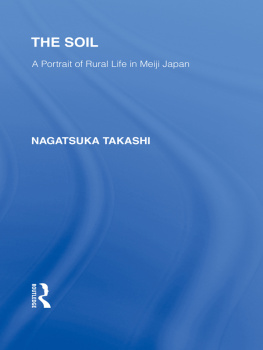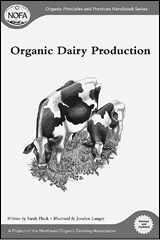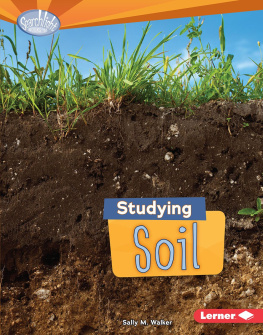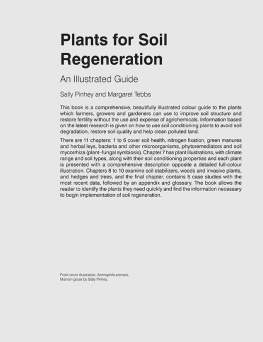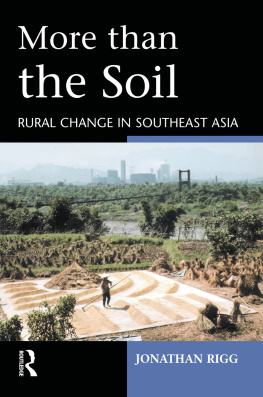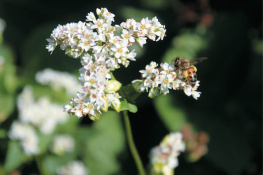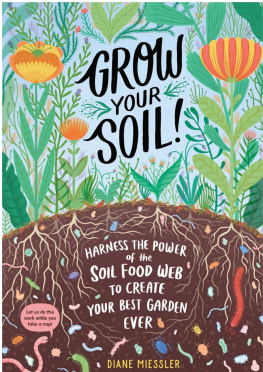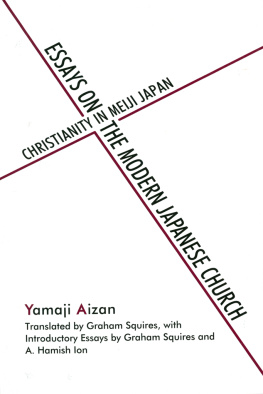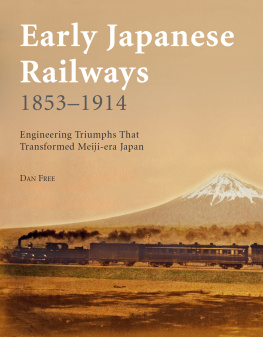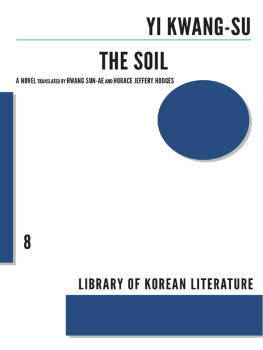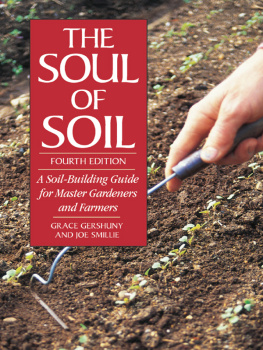ROUTLEDGE LIBRARY EDITIONS: JAPAN
THE SOIL
THE SOIL
A Portrait of Rural Life in Meiji Japan
NAGATSUKA TAKASHI
Translated and with an introduction by
ANN WASWO
Volume 61

LONDON AND NEW YORK
First published in 1989
This edition first published in 2011
by Routledge
2 Park Square, Milton Park, Abingdon, Oxon, OX14 4RN
Simultaneously published in the USA and Canada
by Routledge
270 Madison Avenue, New York, NY 10016
Routledge is an imprint of the Taylor & Francis Group, an informa business
This edition published in the Taylor & Francis e-Library, 2010.
To purchase your own copy of this or any of Taylor & Francis or Routledges collection of thousands of eBooks please go to www.eBookstore.tandf.co.uk.
1989 Ann Waswo
All rights reserved. No part of this book may be reprinted or reproduced or
utilised in any form or by any electronic, mechanical, or other means, now
known or hereafter invented, including photocopying and recording, or in any
information storage or retrieval system, without permission in writing from the
publishers.
British Library Cataloguing in Publication Data
A catalogue record for this book is available from the British Library
ISBN 0-203-84194-8 Master e-book ISBN
ISBN 13: 978-0-415-56498-4 (Set)
eISBN 13: 978-0-203-84317-8 (Set)
ISBN 13: 978-0-415-59401-1 (Volume 61)
eISBN 13: 978-0-203-84194-5 (Volume 61)
Publishers Note
The publisher has gone to great lengths to ensure the quality of this reprint but
points out that some imperfections in the original copies may be apparent.
Disclaimer
The publisher has made every effort to trace copyright holders and would
welcome correspondence from those they have been unable to trace.
The Soil
A Portrait of Rural Life in Meiji Japan
Nagatsuka Takashi
translated and with an introduction by
Ann Waswo

ROUTLEDGE
London and New York
First published 1989 by Routledge
11 New Fetter Lane, London EC4P 4EE
29 West 35th Street, New York NY 10001
This edition published in the Taylor & Francis e-Library, 2010.
To purchase your own copy of this or any of Taylor & Francis or Routledges collection of thousands of eBooks please go to www.eBookstore.tandf.co.uk.
1989 Ann Waswo
All rights reserved. No part of this book may be
reprinted or reproduced or utilized in any form or
by any electronic, mechanical, or other means, now
known or hereafter invented, including photocopying
and recording, or in any information storage or
retrieval system, without permission in writing from
the publishers.
British Library Cataloguing in Publication Data
Nagatsuka, Takashi
The Soil: a portrait of rural life in Meiji Japan
(The Nissan Institute Routledge Japanese studies series)
1. Fiction in Japanese, 18681945
English texts
I. Title II. Tsuchi. English
895.6 34 [F]
ISBN 0-415-03074-9
Library of Congress Cataloging-in-Publication Data
Nagatsuka, Takashi, 18791915.
[Tsuchi. English]
The Soil/by Nagatsuka Takashi: a portrait of rural life in
Meiji Japan, translated and with an introduction by Ann Waswo.
p. cm. (The Nissan Institute/Routledge Japanese studies series)
Translation of: Tsuchi.
1. Nagatsuka, Takashi, 18791915Translations, English.
I. Waswo, Ann. II. Title. III. Series.
PL812.A46T713 1989
895.6 34dc 19 8834308 CIP
ISBN 0-415-03074-9
ISBN 0-203-84194-8 Master e-book ISBN
Contents
Acknowledgments
I first learned of the existence of Tsuchi (The Soil) some twenty years ago when I was a graduate student in Tokyo collecting material for what later became a book about Japanese landlords. During one of my infrequent but always useful visits to my unofficial mentor, Professor Furushima Toshio, then Dean of the Faculty of Agriculture at Tokyo University, I had somehow felt emboldened to complain that after several months work in libraries I was saturated with information about crop yields, rent levels and the concentration of land ownership in the Meiji era (18681912). Couldnt you suggest some books about the texture of rural life at the time?, I asked. Professor Furushima smiled, ruefully I thought, and replied that since he and many other Japanese scholars of his generation had grown up in villages or small towns and knew what the texture of rural life was like, they had not dealt with that facet of the countrys agrarian history in their work. You ought to read Tsuchi, he advised, and so, eventually, I did.
At the outset my intention was simply to mine the novel, as other historians have mined other novels, for anecdotal information about rural values, customs and social relations. That I subsequently took the more radical decision to translate it in its entirety stemmed primarily from my realization that although Tsuchi was undeniably a novel it was simultaneously an informal ethnography of a rural community and its inhabitants in the early 1900s and, as such, a valuable historical document.
Except for the dialect the characters speak, which I have found no viable way of capturing in English, and a relatively small number of Japanese terms that are defined in an appended glossary, I have tried to provide as accurate and as complete a translation as I could. I should emphasize, however, that it has been as an historian and not as a specialist in literature that I have approached the task. To be frank, the ethnographic features of the novel have always interested me more than its equally careful observations about natural phenomena, and I am quite sure that this bias, despite my efforts to control it, is still reflected in my rendering of the text. I am also quite sure that I have failed to notice, much less to correct, what others more skilled in Japanese than I will detect as blatant errors of translation. For the latter, especially if they result in misconstruction of the narrative, I apologize.
Without in any way tainting them with responsibility for such errors, or for other shortcomings in what follows, I would like to thank Gail Bernstein, Karin Blair, Sarah Metzger-Court, Eiichi Motono, Arthur Stockwin, Richard Waswo, and in Japan Watanabe Yoshio, Shirai Atsushi, Shirai Takako, Noguchi Mitsuo, Nagase Junichi and Kawamura Yoshio (whose own translation of the novel was privately published in Japan in 1986) for the special help they have given me at one time or another during the rather long time it has taken me to get this translation finished. I would also like to thank the University of Virginia and the Inter-Faculty Committee for Japanese studies, University of Oxford, for financial support at the beginning and end of the project.
A.W.
Oxford, 1988
Translators introduction
The hamlet of Kossho, now part of the town of Ishige, lies on the western bank of the Kinu River in Ibaraki Prefecture, some 44 miles as the crow flies to the northwest of Tokyo. There on the 3rd of April 1879 Nagatsuka Takashi was born, the first son of a substantial landowning family, and there, at his family home and at a desk in the library of the village school during the spring and summer of 1910, he wrote Tsuchi (The Soil), his only novel. Serialized in the Tokyo Asahi Newspaper in 151 installments between June and November of that same year, the complete novel was published in book form in 1912. Three years later, on the 8th of February 1915, its author, not quite 37 years old, died of laryngeal tuberculosis.

